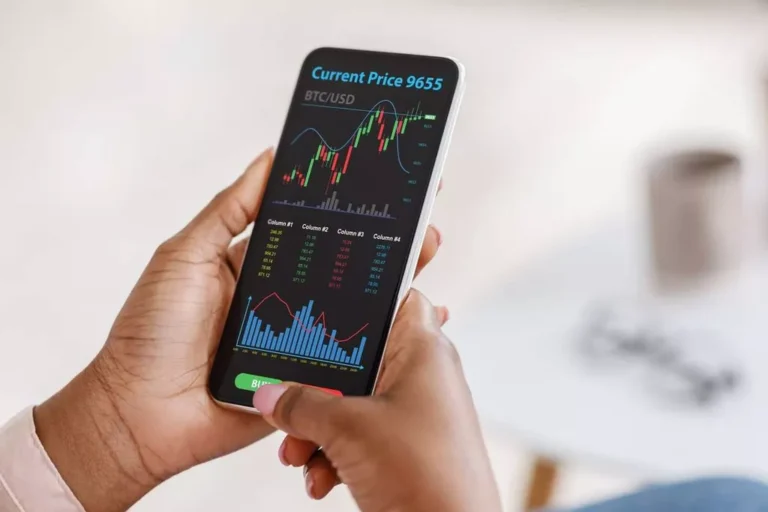ETFs typically have decrease expense ratios in comparability with actively managed funds, making certain that extra of your cash is working for you. This cost what is a liquidity provider effectivity turns into particularly priceless when markets are peaking, as larger costs can erode returns. ETFs are extra liquid than mutual funds since they trade on the stock exchanges. They can trade like shares without any redemption process or a lock-in interval.
What’s The Difference Between Etf And Mutual Fund?
The purity of the metallic is assured, and it is saved in secure custody, thus eliminating the chance of theft is eliminated. And all of the unit-holder in ETFs wants to hold are the units in a demat account, in digital type. The bid-ask spread is the distinction between the best worth a purchaser is prepared to pay for an ETF and the bottom price a seller is willing to simply accept. Wider spreads can occur, particularly in ETFs with decrease trading volumes or investing in markets or sectors with less liquidity. While ETFs are often seen as a way to achieve broad market exposure, additionally they offer the potential for producing alpha—returns that exceed the benchmark. By investing in ETFs that focus on undervalued sectors or good alpha/beta methods, you would possibly obtain higher alpha compared to conventional mutual funds.
Bulk Deals Vs Block Offers Within The Share Market To Know

And if the trading quantity of an ETF’s core assets is critical, the ETF’s total liquidity rises. On the opposite hand, ETFs which have low liquidity are most likely to have fewer consumers and sellers, which might make it tough to purchase or promote shares with out affecting the market worth. It’s essential to understand that an ETF’s liquidity can change over time, which is why it’s essential to regulate the liquidity of the ETF you’re interested in. Bank ETFs invests in a basket of banking shares listed on the inventory exchanges. The expense ratio is an annual charge a fund costs to cowl its bills.
Etfmirae Asset Nifty India Manufacturing Etf
In the case of Index Funds, it is the responsibility of the mutual fund home to allocate units for purchase transactions and to honour redemption requests. For ETFs, demand is an important factor that determines the liquidity. Index Funds can be purchased instantly by way of an AMC or mutual fund distributor but to purchase an ETF investors must have a buying and selling & Demat account. You can earn cash (returns) from a mix of dividends paid by the stocks (if you personal an equity-oriented ETF) and capital positive aspects, i.e., a rise in the value of the securities owned by the ETF.
- The ETF invests in Tri-party Repo/Repo & Reverse Repo or easy words, debt and cash market securities with maturities of as much as ninety one days.
- Thus, exchanging them for their unique form, exchange-traded fund underlying property.
- The worth of liquid ETF in India stays constant at ₹1000, and the returns are generated as daily dividends as ETF items, credited to the Demat account as soon as each 30 days.
- Individuals are more and more exploring avenues past traditional financial savings to amplify their wealth.
- ETFs are Exchange Traded Funds that follow an index corresponding to NSE Nifty 50 or BSE Sensex.
Stocks To Observe For Union Finances 2024: Rural Financial System In Focus
In conclusion, Exchange Traded Funds (ETFs) are a sensible software for traders. With ETFs, you can spread your cash throughout different things, similar to stocks or bonds, by shopping for one factor. They are like a buffet the place you’ll be able to select from many other foods without ordering every individually. In our fast-changing world, ETFs help individuals make investments their money correctly and simply, making them an essential part of trendy investing.
Advantages Of Investing In Trade Traded Mutual Funds:

ETFs can maintain various investments, such as shares, commodities, or bonds; some are limited to the United States, while others are global. ETFs have lower expense ratios and decrease broker commissions than individual stocks. Mutual Funds gather capital from a pool of buyers to put money into a diversified portfolio of stocks, bonds, or other securities. Managed by professional fund managers, these funds aim to outperform the market, adjusting the portfolio primarily based on market analysis and the fund’s investment objective. Unlike ETFs, mutual funds are priced at the finish of the trading day based on their internet asset worth (NAV).
Open A Free Demat & Trading Account
Insurance just isn’t a Exchange traded product and the Member is just acting as distributor. All disputes related to the distribution exercise of insurance coverage is not going to have access to Exchange investor redressal forum or Arbitration mechanism. While there are quite a few benefits of ETFs, in addition they have potential drawbacks that traders should consider.
For occasion, large-cap stock ETFs trade extra incessantly than small-cap ETFs resulting in lesser liquidity within the small-cap inventory ETFs. So, for ETFs, liquidity refers to how rapidly and simply you ought to buy or sell an ETF available within the market. In easier phrases, it’s how straightforward it’s to turn your funding into cash. ETFs which have high liquidity are inclined to have numerous patrons and sellers in the market, which suggests you possibly can shortly purchase or promote shares with out affecting the market worth.

These funds aim to track and replicate the performance of a specific index corresponding to Nifty 50, S&P BSE Sensex, and so on. by mirroring their composition. Thus, when you invest in ETFs you presumably can count on to earn returns in line with the benchmark index or market subject to monitoring error. Both ETFs and mutual funds carry market danger, meaning the worth of the investments can fluctuate based on the efficiency of the underlying property. ETFs may additionally contain trading risks as a outcome of their stock-like buying and selling options, corresponding to bid-ask spreads and potential pricing discrepancies.
Bought and sold at the end of the trading day on the Net Asset Value (NAV). In conclusion, Gold ETFs and Silver ETFs supply a convenient, cost-effective, and diversified approach to invest in treasured metals. Let’s assume that you just need to diversify your portfolio and want to invest in gold using ETFs.
Short terms features made on ETF items held for a interval of less than 36 months are taxed as per the relevant income tax slab rate. Long-term capital positive aspects on units held for over one year are taxed at 20% after indexation profit. Dividends earned by the ETF investor benefit from the tax exemption from the exchange-traded funds’ schemes. You can easily purchase or promote ETFs on a real-time foundation, once you have a Demat account.
Another difference between etf and mutual fund, ETFs supply tax advantages; their unique structure can result in fewer capital features tax liabilities than mutual funds. For investors in search of diversified exposure to varied sectors or indices with the extra benefit of stock-like buying and selling, ETFs current an attractive option. Exchange-Traded Funds (ETFs) and Mutual Funds are each kinds of investment funds, pooling investors’ money to purchase a diversified portfolio of assets.
This can particularly impact traders who make use of dollar-cost averaging or other methods that involve common purchases. Although ETFs typically have lower annual expenses because of their passive management structure, they don’t appear to be proof against trading costs. Each time an ETF is bought or sold, the investor usually pays a brokerage fee, which might add up with frequent trading. Firstly, it ensures ease of buying and selling, permitting investors to enter or exit positions promptly. Secondly, excessive liquidity reduces the bid-ask spread, leading to lower transaction costs. ETF liquidity is primarily decided by the trading volume and the presence of active market makers.
This construction would possibly result in higher expense ratios due to lively administration, but presents a broader diversification and potential for higher returns via expert portfolio administration. ETFs are investment funds holding a diversified portfolio of property similar to shares, or bonds in their demat and trading accounts. Unlike mutual funds, which are priced at the finish of the buying and selling day, ETFs can be bought and offered throughout the buying and selling day at market costs.
However, like several funding, they’ve potential drawbacks, corresponding to market volatility and administration charges. This could be one of many important disadvantages of ETFs as a result of it effectively increases the cost of buying and promoting them. In cases the place the spread is extensive, it may possibly impression the overall profitability of investing in such ETFs, significantly for people who commerce frequently or require immediate liquidity. Liquidity is a crucial advantage as a outcome of traders can usually execute trades quickly at market costs. This is particularly important in risky markets the place the power to enter or exit positions swiftly can defend capital or capture growth. In addition to boosting liquidity for an ETF, MMs also help in an ETF to commerce at a worth nearer to its honest value i.e.
Read more about https://www.xcritical.in/ here.
No comment